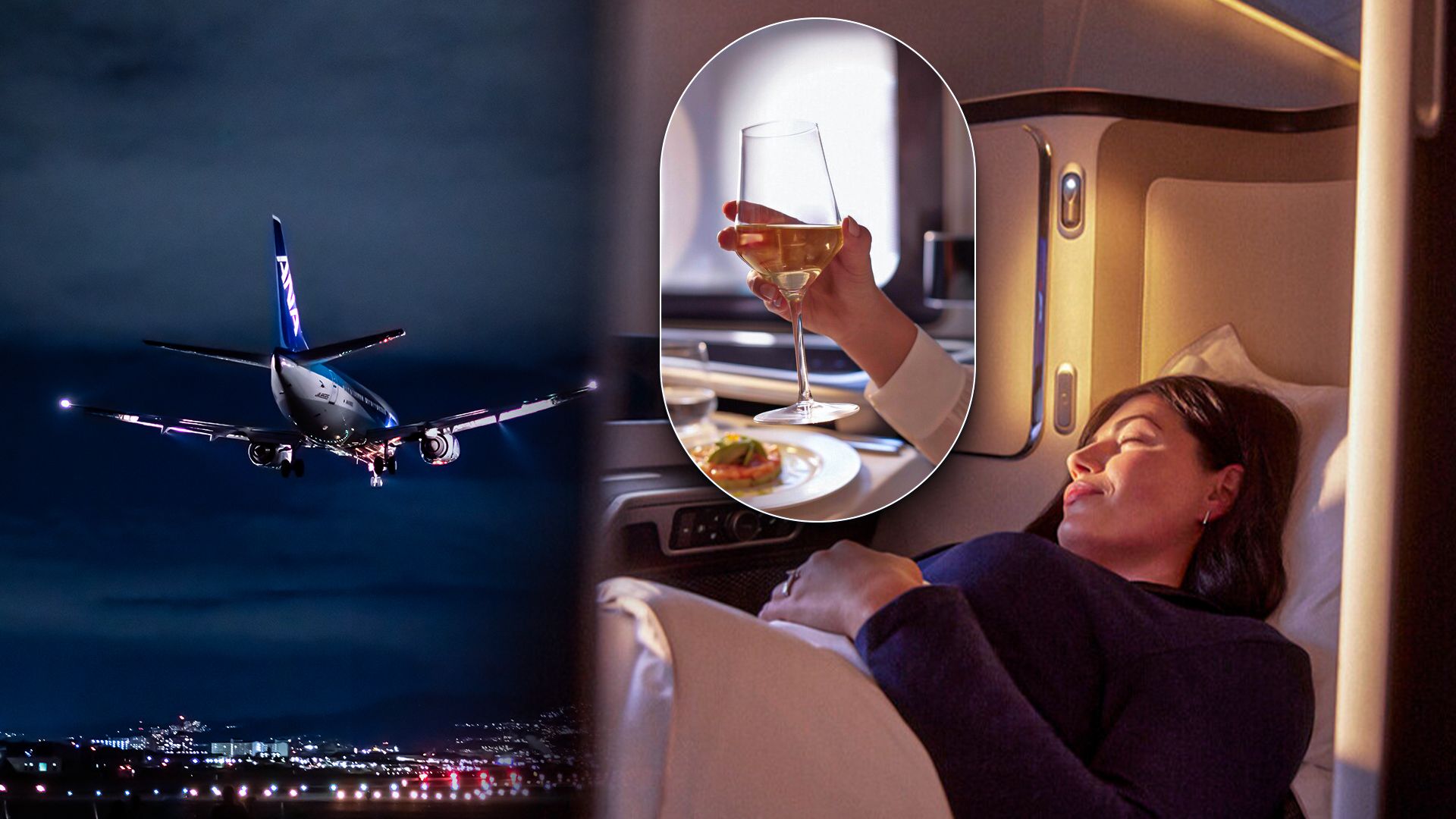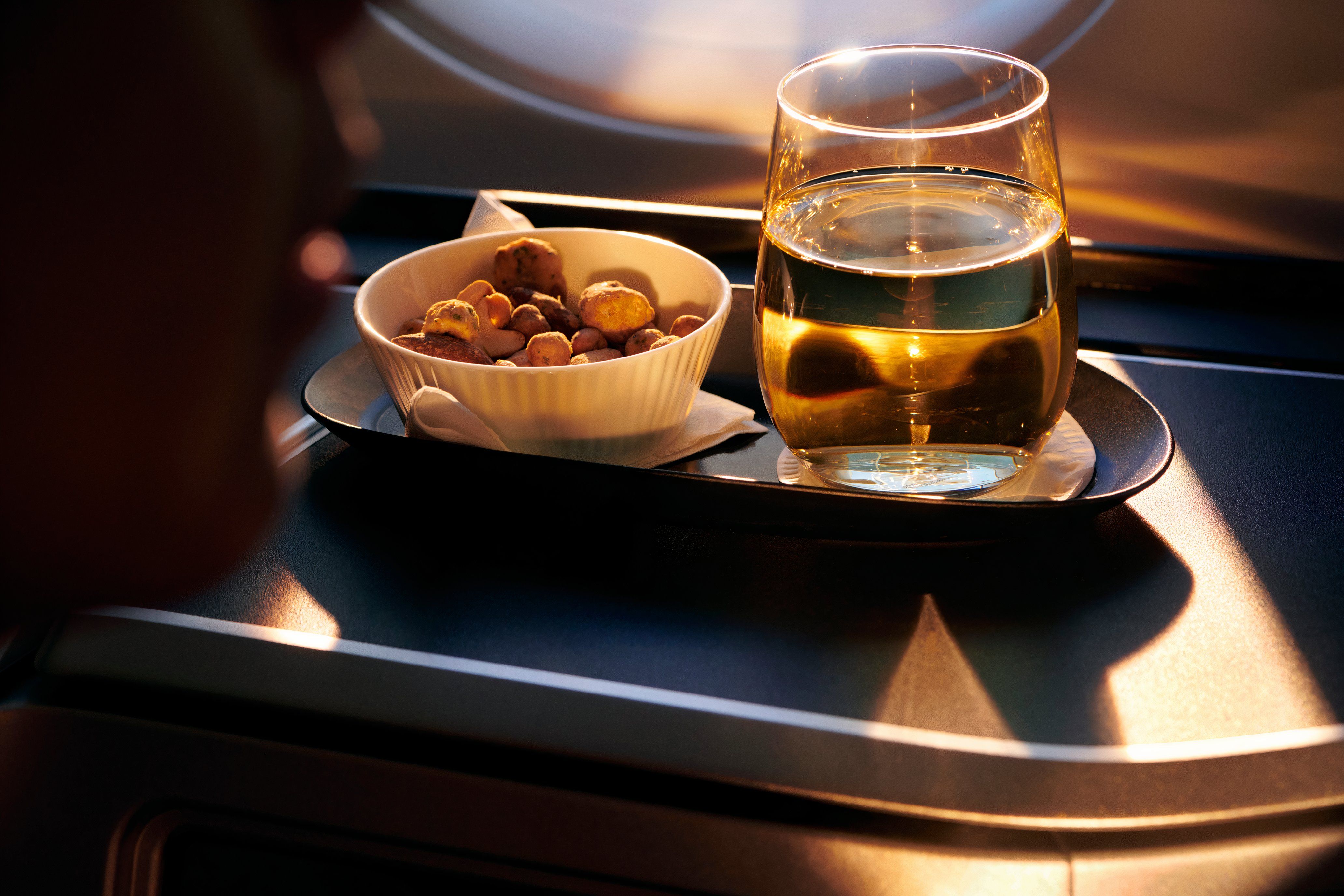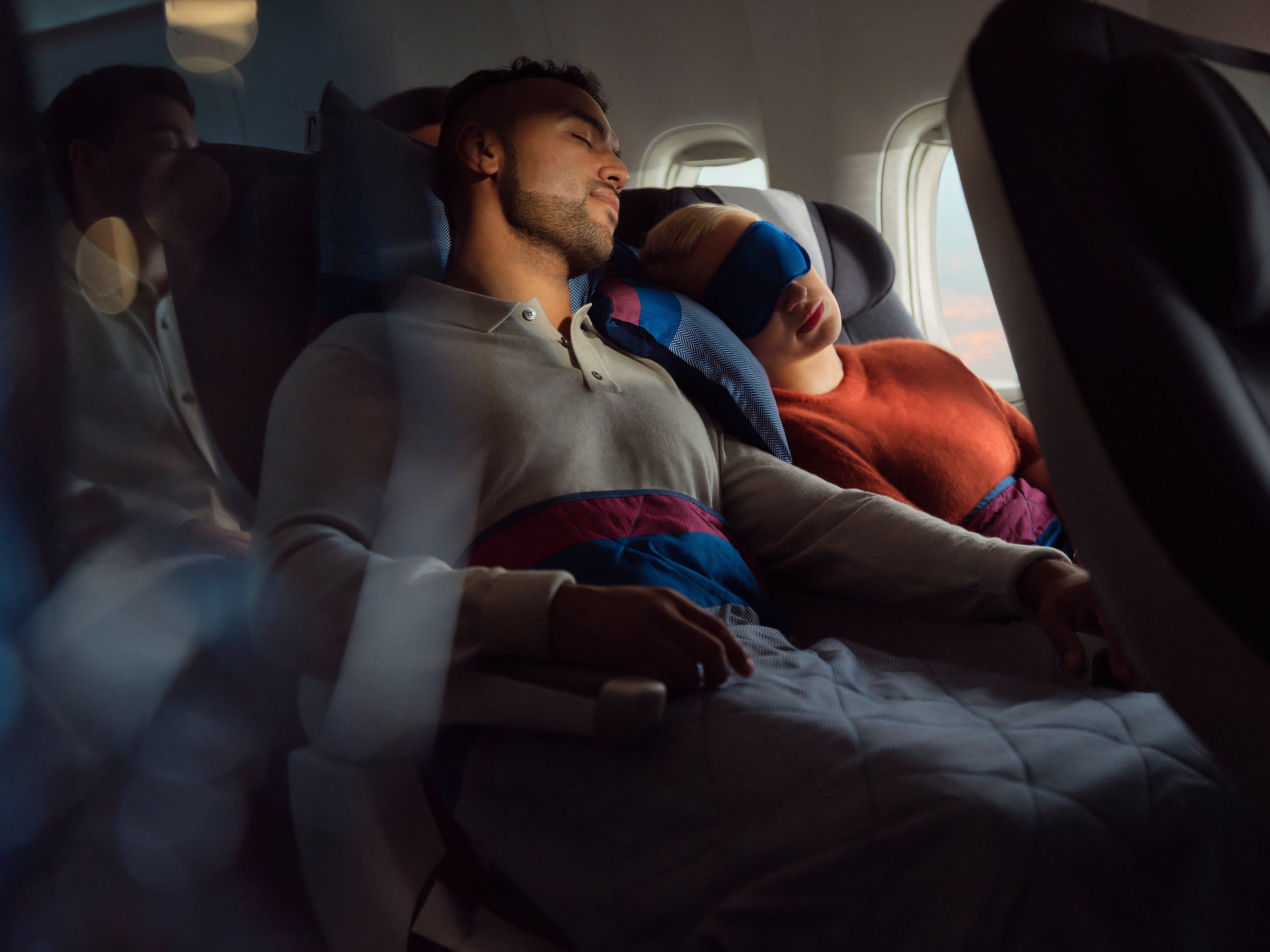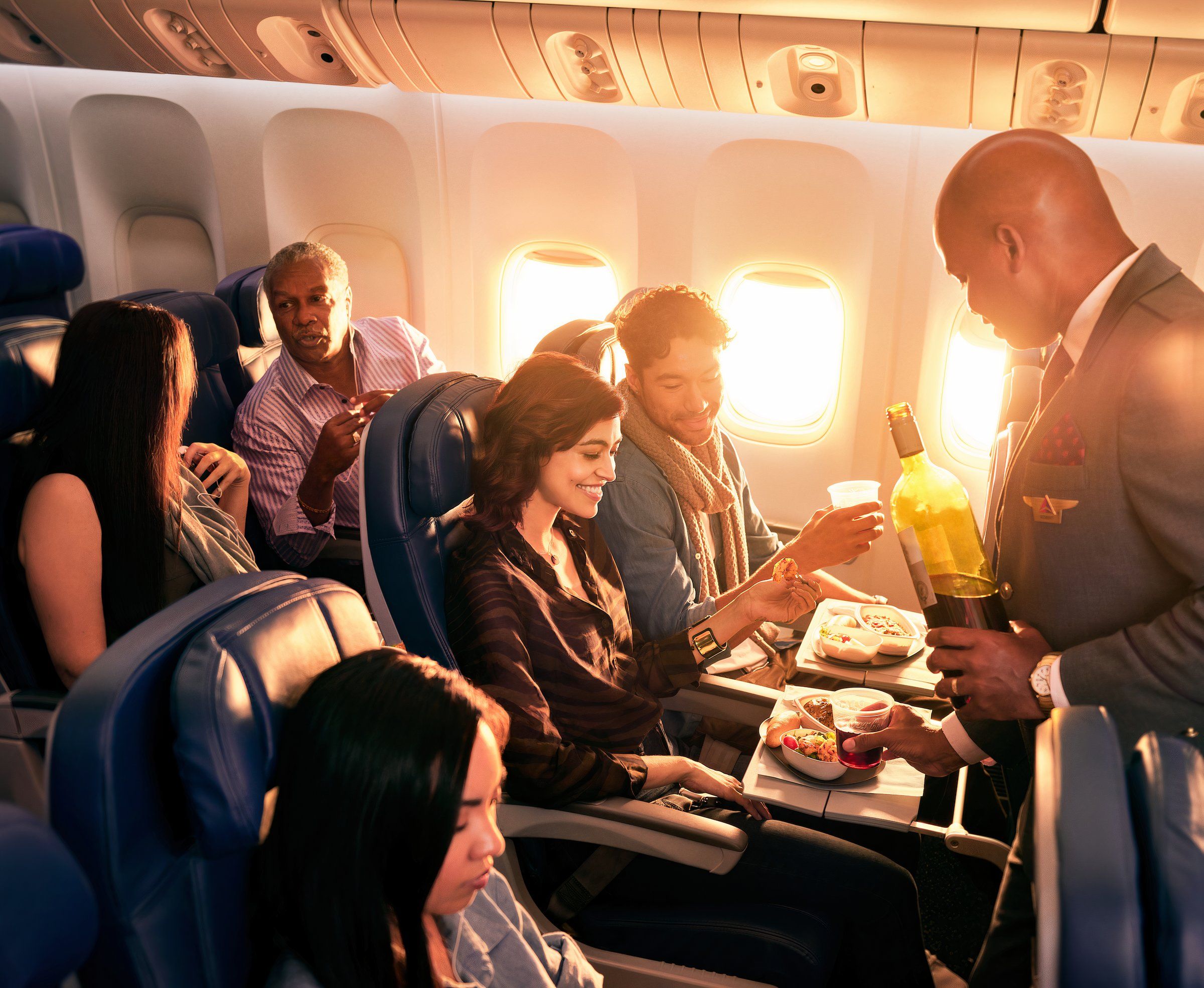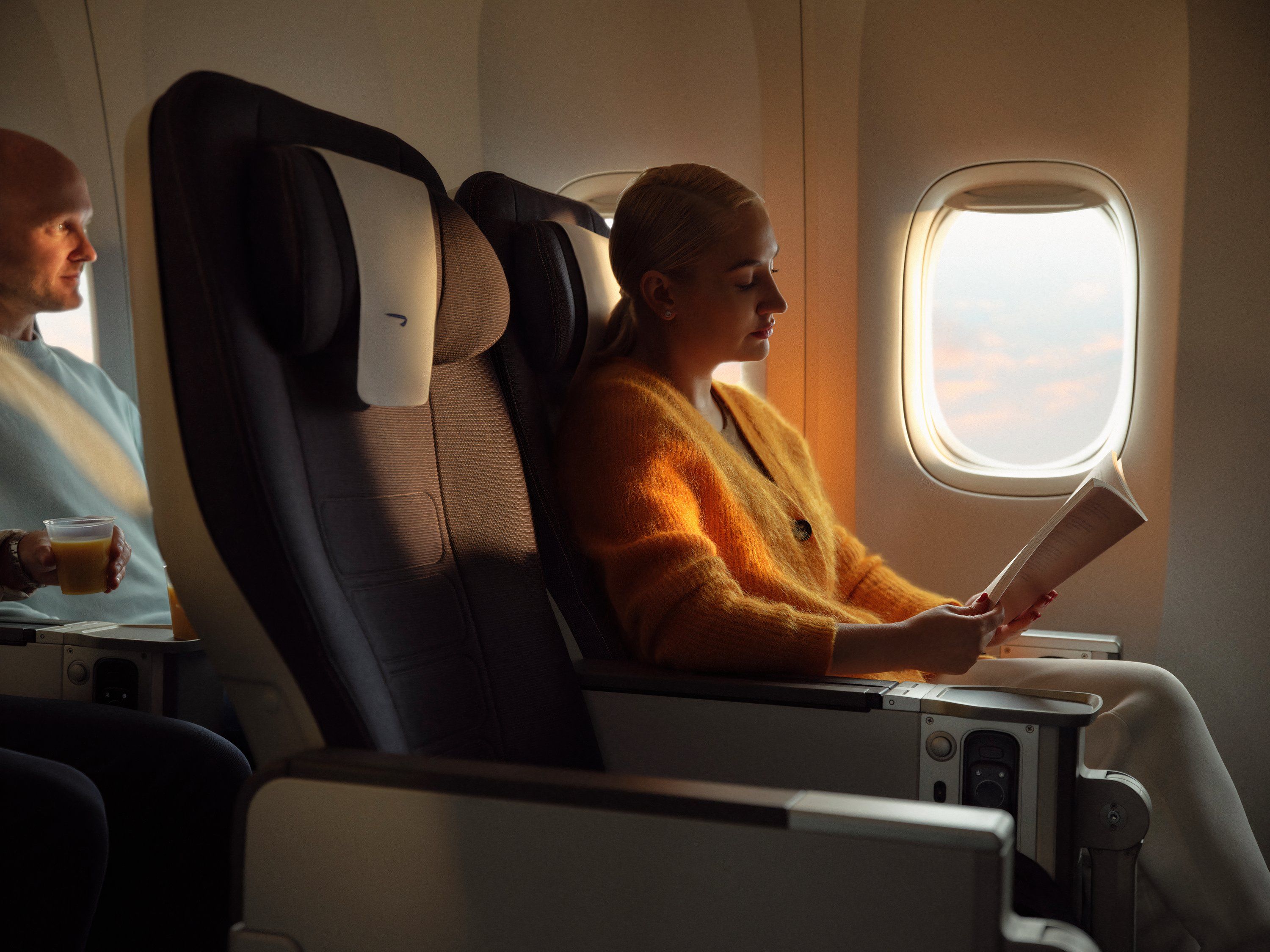Summary
- A new study shows that alcohol consumption before air travel reduces passengers’ quality of sleep, particularly in the important REM stage.
- Drinking before sleeping also impacts cardiovascular health, leading to hypoxemia and faster heart rates while flying.
- Healthy practices for a restful sleep while flying include hydrating with water, avoiding caffeine and alcohol, eating healthy foods, and sticking to the body’s natural sleep cycles.
Any frequent flier knows the excitement of learning your ticket has been upgraded and a first-class flight awaits. For many, part of the excitement of traveling in first or business class is the free alcoholic beverages offered by many airlines. However, after learning the results of a study released this month, you might want to think twice before ordering that glass of wine on your next flight.
On June 3, a new study was published in the journal Thorax, a peer-reviewed monthly publication of the British Medical Journal (BMJ). The study, conducted by German researchers, found that consuming alcohol before or during a flight could decrease blood oxygen levels and increase heart rate while sleeping.
After examining 48 participants over two nights, researchers found that deep sleep was greatly reduced in passengers who drank alcohol before sleeping. Even healthy participants showed a dramatic negative effect on sleep when combining alcohol with the reduced atmospheric pressure found in aircraft cabins.
The researchers recommend that airlines restrict inflight alcohol consumption, particularly on overnight flights. They also offer passengers tips on how to sleep better while traveling and what foods and drinks to avoid.
Photo: British Airways
The study
The researchers at the German Aerospace Center’s Institute of Aerospace Medicine and Aachen University have recently released the results of a study on alcohol’s effects on airline passengers. The study specifically focused on how passengers’ sleep is affected after consuming alcoholic drinks.
The study’s participants consisted of 48 healthy adults aged 18 to 40. The passengers were randomly split into two groups: a test group and a control group.
The study was carried out over two nights. On both nights, one group was placed in an altitude chamber corresponding to around 8,000 feet above sea level (2,438 m), reflecting cabin pressure on a commercial flight. The second group spent both nights in a sleep laboratory positioned at approximately 174 feet above sea level (53 m).
The “inflight” sleeping conditions resembled business or first-class style seating, as participants could sleep horizontally. The researchers attempted to create a simulation that was as realistic as possible by including inflight noise pre-recorded on a long-haul flight.
On the first night of the study, neither group consumed alcohol before sleeping. During the night, participants’ vital signs were recorded to serve as a baseline for each individual.
After two eight-hour recovery nights, participants returned for the second stage of the study. They remained in their original groups with their originally designated sleep locations. Researchers limited participants’ sleep duration to four hours, resembling undisturbed time on a typical long-haul flight.
However, on this second night, passengers would all consume approximately two glasses of wine or two cans of beer before sleeping. According to CNBC, the goal was for participants to drink until their blood alcohol concentration (BAC) reached 0.06%, to mimic an average legal limit in Europe and the US. The study’s authors report that the mean BAC for participants was actually 0.043%.
Researchers compared participants’ vital signs and sleep data from the two nights. Their findings provide valuable insight into the negative effects of alcohol on inflight sleep and give important health reminders for airline passengers.
|
Test Group |
Average BAC |
Median Blood Oxygen Saturation |
Median Heart Rate |
Median REM sleep time |
|---|---|---|---|---|
|
Control Group; no alcohol |
0% |
95.88% |
63.74 bpm |
37.00 minutes |
|
Inflight Group; no alcohol |
0% |
88.07% |
72.90 bpm |
22.00 minutes |
|
Control Group; with alcohol |
0.042% |
94.97% |
76.97 bpm |
32.50 minutes |
|
Inflight Group; with alcohol |
0.043% |
85.32% |
87.73 bpm |
14.50 minutes |
Findings: Inflight alcohol and sleep
The study’s results provided valuable answers for researchers. Above all, they found that passengers’ quality of sleep while flying was greatly reduced after consuming alcohol. When participants drank before sleeping in the study’s airplane conditions, their time in REM sleep was much shorter than when they had not drunk. This part of sleep, the rapid-eye-movement stage, is considered essential to memory consolidation and brain recuperation, per the National Institute of Health.
It has long been accepted that alcohol negatively influences sleep in general, everyday conditions. According to medical doctors interviewed by CNN, people tend to wake up more often during the night and not sleep as long after drinking alcohol.
Photo: British Airways
While alcohol’s immediate sedative effects can sound appealing for airline passengers wishing to sleep through a flight, the resulting fragmented sleep can actually tire you out more than recharge you. The reduced atmospheric pressure in aircraft cabins can further exacerbate the negative effects of alcohol on sleep.
The study’s authors were sure to point out that all participants in their study were healthy adults. For elderly passengers or those with pre-existing medical conditions, inflight alcohol could have even more serious effects on sleep and overall health. Additionally, higher rates of consumption are likely to worsen alcohol’s negative effects.
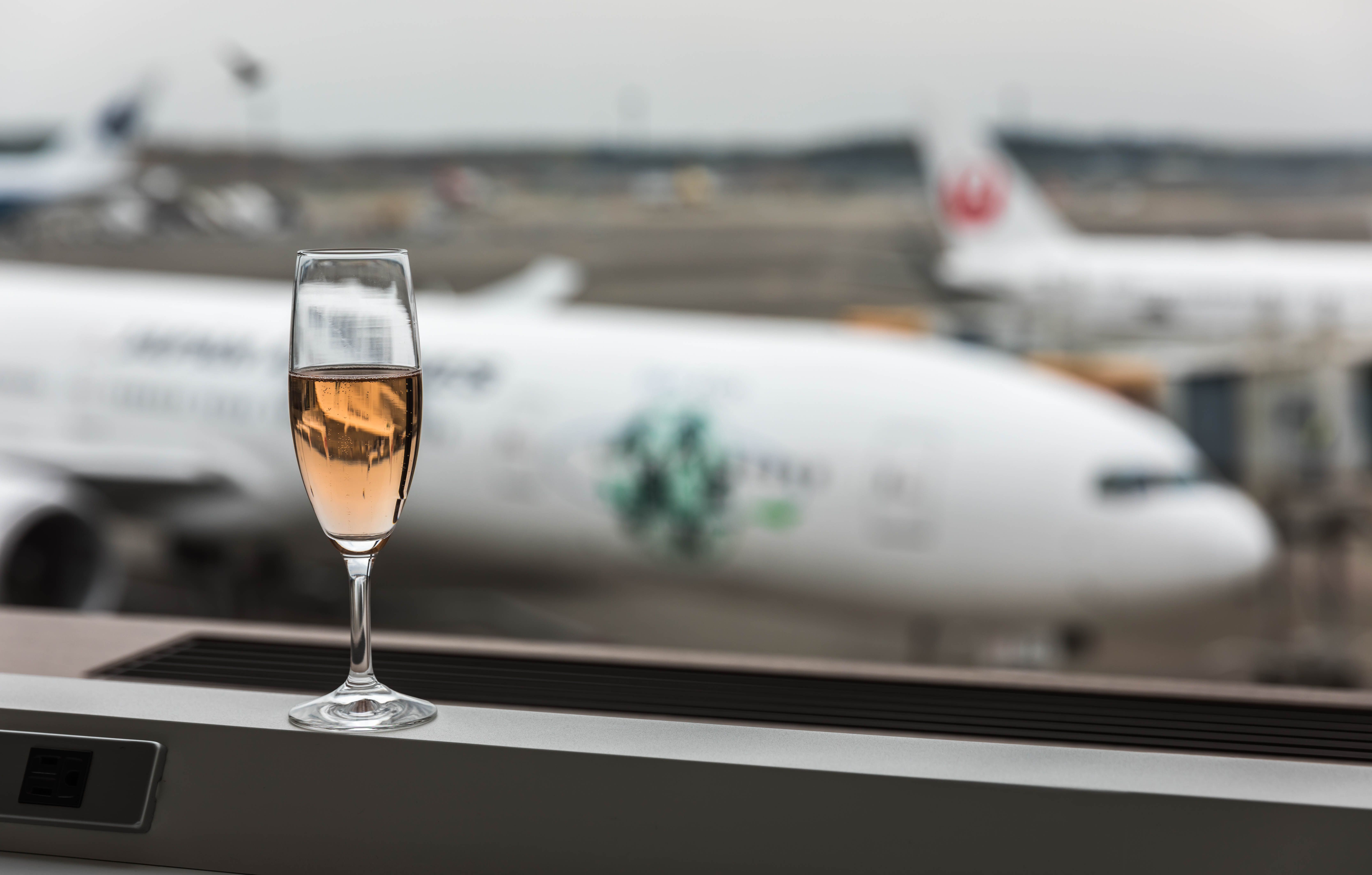
Related
Is It Illegal To Be Drunk Onboard A Commercial Aircraft?
Excessive drinking is a hot topic for aviation authorities.
Findings: Inflight alcohol and the heart
The researchers did not only examine alcohol’s effects on inflight sleep. They also investigated how drinking before or during a flight affects passengers’ hearts.
According to the researchers, blood oxygen saturation already shows a fall in inflight sleep due to the reduced atmospheric pressure in aircraft cabins. When alcohol is added to the equation, passengers’ cardiovascular systems are stressed, and hypoxemia, or low oxygen levels in the blood, is worsened.
Researchers found that participants in the “airplane” showed a median decrease of 85% during sleep after alcohol consumption. Many participants, even young and healthy people, even showed critical oxygen desaturations lower than 90%. The participants in this group also had elevated heart rates while asleep, with a median of 87.7 beats per minute (bpm).
In comparison, when sleeping at cabin pressure without consuming alcohol, participants’ blood oxygen levels averaged 88%, and their heart rates had a median of 72.9 bpm. The group in the sleep laboratory that did not drink had even better results: a median blood oxygen level of 98.8% and a heart rate of 63.7 bpm.
Photo: Delta Air Lines
Although researchers expected to find that alcohol did indeed negatively affect airline passengers’ sleep quality, they were surprised at just how much of an impact a few drinks can have. The study expresses concern for passengers, urging them to refrain from drinking alcohol before or during a flight.
Dr. Eva-Maria Elmenhorst, one of the study’s authors from the German Aerospace Center’s Institute of Aerospace Medicine, shared some remarks on the findings. According to her statement given to Euronews, the biggest takeaway from the study is:
“[passengers] should be made aware that drinking alcohol during a flight is not without risk.”
Photo: British Airways
Healthier inflight habits for sleep
The study concludes with healthy alternatives to alcohol for passengers hoping to sleep while in the sky. Many of these suggestions are already widely accepted as healthy travel habits, but others may be new to some travelers.
- Stick to natural body cycles (Circadian rhythms) when possible.
- Stay hydrated, but avoid stimulants (like coffee or energy drinks) and depressants (like alcohol); water is the best beverage to consume while flying.
- Avoid airports’ and airlines’ typically salty, greasy, and heavily processed food; either pack a meal from home or find healthier alternatives.
- Move during the flight; walking up and down the aisle or stretching in your seat can help you sleep better.
- Avoid blue lights from phone screens or in-flight entertainment displays.
- If you need entertainment before sleeping on a flight, listen to music with noise-canceling headphones, write, or read a book.
Photo: British Airways

